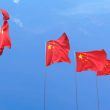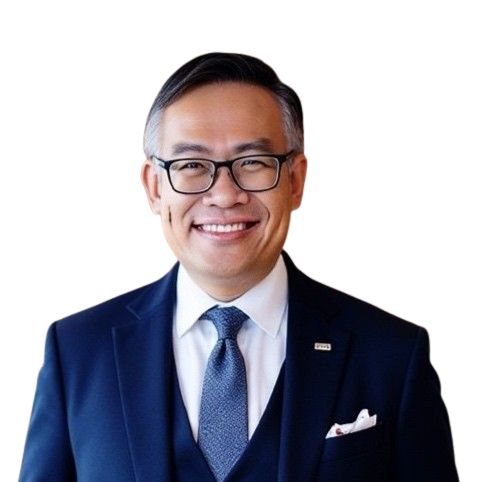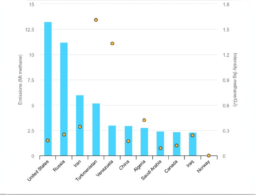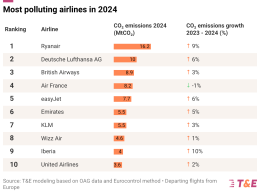OCS Global Services earned the Bronze Award for Asia’s Best Sustainability Report (CEO Letter) at the 11th Asia Sustainability Reporting Awards, recognising exemplary transparency and leadership in sustainability communications. As the official media partner of ASRA, ESG Post conducted an exclusive interview with Yohanes Jeffry Johary, President and Managing Director of OCS Indonesia, whose leadership has been instrumental in embedding sustainability across the organisation’s culture, operations, and long-term value creation model. In this in-depth conversation, he discusses the role of authenticity in leadership, the strategic importance of sustainability as a driver of innovation and trust, and OCS Indonesia’s vision for people-centred, circular, and digitally enabled growth.
Congratulations on your company’s success at the Asia Sustainability Reporting Awards. What does this achievement signify from a leadership perspective?
Winning the Bronze Medal at the Asia Sustainability Reporting Awards 2025 for Asia’s Best Sustainability Report (CEO Letter) is a powerful affirmation of authentic leadership. It shows that integrity and purpose can stand shoulder-to-shoulder with size and capital. For us, this recognition is not about hierarchy, it’s about honesty. The CEO Letter represents a leader’s willingness to be transparent about progress and shortcomings alike. For OCS Indonesia, it means that a people-driven organization from a service industry can gain regional recognition through consistency. Our 13,000 colleagues across 1,800 sites are the real proof behind this award. They translate our values into daily actions that give credibility to every word written. From a leadership lens, this milestone reminds us that vision without vulnerability is just aspiration. Authentic leadership demands both courage and humility.
How does sustainability fit within your overall business strategy and long-term value-creation goals?
Sustainability is the central framework of our business model. It guides how we grow, invest, and create value. Our strategy is anchored on People, Planet, and Prosperity, built on the belief that commercial success and societal wellbeing are inseparable. Through VOCIFY Green Skills & Apprenticeship, we strengthen employability and social mobility. Environmentally, we advance circular-economy practices by reducing waste, reusing materials, and deploying energy-efficient equipment. These are not just compliance gestures; they generate tangible business value. Lower turnover, higher retention, and trusted partnerships have become our competitive strengths. Long-term value creation happens when sustainability decisions outlast business cycles, when purpose becomes the engine of performance.
What role do you personally play in setting and steering the sustainability agenda within the company?
Our role is to make sustainability as a culture in this largest British employer in this country. The CEO Letter is a leadership accountability statement. Our ExCom ensures every decision, from supply chain to human capital, passes through a sustainability lens. Beyond structure, We focus on belief-building. We remind our leaders that sustainability is not an extra cost; it is a multiplier of efficiency, trust, and growth. Externally, I represent OCS Indonesia within British Chamber of Commerce, American Chamber of Commerce, and the U.K.-ASEAN Business Council (UKABC), aligning our agenda with the UK’s four pillars: People, Planet, Prosperity, and Peace. Leadership means shaping culture at home and contributing credibility abroad.
Many CEOs now see sustainability as a competitive advantage. How has it shaped innovation, market growth, or stakeholder trust for your organisation?
Sustainability has transformed OCS Indonesia into an innovation-driven enterprise. Our Milky Way Digital Transformation Project allows day-one operational visibility and day-three financial closure, giving our operation and commercial teams get flexibility to response our customers faster into resource use, service deliverable in soft, hard, and advisory, until environmental performance. That transparency builds trust, especially in heavily regulated sectors like manufacturing, banking, and energy resources sectors. Sustainability has also opened new markets. Global partners now look for FM providers that can meet their ESG standards; and our integrated model positions us as a preferred partner. Internally, our TRUE Star and TRUE Champion Awards reinforce ethical behavior and recognition of purpose, fostering deep engagement. Through sustainability, innovation gains direction and trust gains depth.
Why do you believe sustainability reporting is vital for corporate leadership today?
Sustainability reporting is leadership in written form. It’s how we turn promises into public accountability. In emerging markets, transparency still differentiates credible companies from compliant ones. For us, the report serves as a compass that keeps us honest about what we measure, disclose, and still need to improve. It also bridges local reality with global expectations, reassuring investors and regulators that Indonesian companies can operate with the same integrity as listed global firms even in the challenging environments. Reporting brings discipline to decision-making; it aligns intent with evidence. In short, if strategy defines direction, sustainability reporting defines integrity.
How do you ensure that sustainability performance remains a board-level priority amid other business pressures?
At OCS Indonesia, ESG performance is reviewed alongside financial results at every ExCom meeting. We embed it through our ESG Playbook, which links sustainability outcomes to compliance, risk, and customer satisfaction. But structure alone isn’t enough. It is about mindset. We have reframed ESG targets as performance drivers, not obligations. When resource optimization, green chemical conversion, until energy efficiency improves margins and circularity lowers cost, ExCom interest becomes organic. Sustained commitment also comes from storytelling: celebrating teams whose actions deliver both commercial and social impact. That recognition loop keeps ESG visible, measurable, and inseparable from business success to retain, grow, and gain customers.
Could you share an example of a major decision or investment where sustainability considerations played a decisive role?
A defining decision for us was to scale circular-economy practices across OCS Indonesia, transforming how we view resources and people. We redesigned processes to prioritize reuse, recycle, and repurpose, reducing waste while creating value. Uniforms, packaging, and organic waste are now recycled or repurposed in collaboration with local communities, turning potential waste streams into productive inputs. This operational shift cut costs and created livelihood opportunities for small enterprises in our ecosystem.
Equally significant is our commitment to social circularity through the VOCIFY (“Vocational Amplify”) Green Skills & Apprenticeship Programme. We wanted to give our people more options, more mobility, and more hope, helping them grow with the company, or without – by their choices, rather than be replaced by change. By investing in reskilling and internationally accredited pathways, we expanded human potential while strengthening service quality.
We strongly believe, these initiatives prove that regeneration: materials, skills, and dignity, delivers stronger, more sustainable returns than extraction ever could.
As regulatory frameworks such as ISSB gain traction, how do you view their impact on Asian businesses?
Global frameworks like ISSB, GRI, and TCFD will be transformative for Asia. They raise the baseline for disclosure and push companies toward consistent, comparable reporting. For some, this will be a wake-up call; for others, an opportunity to lead. At OCS Indonesia, we embrace these frameworks as tools for competitiveness. They validate our disclosures and give clients confidence that our ESG performance is globally benchmarked. The key challenge ahead is readiness. Many regional corporations need capacity building to comply meaningfully. This is where collaboration among regulators, chambers, and industry bodies matters. The goal is not paperwork, but progress, using global standards to raise regional excellence.
Looking ahead, what are your top three sustainability priorities for the next three years?
First, we will expand the VOCIFY Programme nationwide, scaling green and technical skills that align with Indonesia’s Vision 2045 and create inclusive growth. We get strong supports from The U.K. Governments, British Chamber of Commerce, American Chamber of Commerce, and industry leaders.
Second, we will deepen circular-economy integration, embedding lifecycle thinking across procurement, logistics, and site operations to reduce waste and optimize resources. We aim our initiatives contribute positive double impact not only to customers but also empower their surrounding local communities to improve their economic opportunities through MSME.
Third, we will advance digital ESG analytics to help our customers to measure and track their carbon, energy, and water data for smarter decision-making. In the baseline of OCS Indonesia’s operating model into our 1,800+ sites, we continue to implement ESG Site Ratings for 100% coverage. By integrating the ratings into daily operating activities, we believe this approach is effective for culture development and driving high-impact to ESG deliverables, fostering a positive green mindset to team, customer, and community.
These priorities reflect our commitment to the UK’s sustainability pillars: People, Planet, Prosperity, and Peace. They are concrete, measurable, and designed to ensure OCS Indonesia remains both commercially resilient and socially relevant.
What message would you like to send to your peers and the wider business community about responsible leadership in this decisive decade for climate and sustainability?
This is the decade that will define whether leadership was about ambition or accountability. The world needs proof. My message to peers is simple: sustainability is the new currency of trust. Every decision we make today either strengthens or weakens the foundation of the next generation. True leadership means choosing the path that may take longer but leaves a legacy that lasts. If we can lead with clarity, compassion, and consistency, our businesses will not only thrive… they will help shape an economy that future generations can be proud to inherit.





















